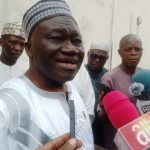The Politics of Space Travel And How It Shapes National Economies Round The World
By Wilson Macaulay
In my earlier article, “How the Colonization of the Moon Began,” I argued that the struggle in space had gone far beyond planting flags on distant worlds. Today, that struggle has evolved into a contest over who controls the affairs of the earthly universe itself.
—
A New Phase of the Space Race
Once, the Cold War defined space politics. The U.S. and the Soviet Union raced to the Moon, with the American flag finally triumphing in 1969. But in 2025, the battle has shifted. It is no longer about who gets there first—it is about who stays, controls, and benefits.
Senator Ted Cruz recently warned during a Senate hearing that “we are in a new space race, and China is closing in fast.” His concern underscores a reality: the outcome of this rivalry will not only determine who walks on the Moon next, but who reaps the trillion-dollar rewards tied to lunar resources, satellite economies, and orbital security.
—
U.S.–China Rivalry: Security Meets Economics
NASA’s Artemis program—now delayed to 2027—seeks to establish a permanent human presence on the Moon. China, with its Chang’e program, plans a lunar landing before 2030. Both powers are eyeing lunar ice, which can be converted into fuel, and rare minerals that could power future technologies.
Analysts say whichever nation controls these resources will hold economic leverage over industries on Earth. “Lunar mining is not science fiction anymore—it is economic strategy,” notes Dr. Maria Lopez, a space policy researcher based in Brussels.
But politics clouds the path.
In the U.S., budget cuts to NASA’s science missions have raised fears of America ceding ground. Meanwhile, China’s centralized model allows it to fast-track projects with fewer bureaucratic hurdles.
—
Militarization of Orbit
Adding another layer, President Donald Trump have announced that U.S. Space Command headquarters would move to Huntsville, Alabama—aligning with the city’s aerospace hub but raising eyebrows about political motivations. This comes alongside a $175 billion push for missile defense and orbital militarization.
Critics warn that pouring resources into space warfare at the expense of scientific exploration risks undermining the very innovation that fuels the U.S. economy. “If we only build weapons in space, we’ll win battles but lose the future,” argues Dr. Jonathan Pierce of MIT. Michigan institute of Technology.
—
Europe, India, and the Global South Step In
Europe’s ESA continues to emphasize collaboration, linking climate change monitoring to space investment. India, with Chandrayaan-3, has positioned itself as the “affordable innovator,” driving private-sector growth in satellite launches and deepening its global partnerships.
But perhaps the most underreported story is how the Global South, especially Africa, is beginning to enter the arena.
—
Africa’s Emerging Space Ambitions
Africa may not yet be competing with the U.S. or China for lunar colonies, but the continent understands that controlling orbit is tied to sovereignty, security, and economic independence.
Nigeria: Through the National Space Research and Development Agency (NASRDA), Nigeria has launched several satellites—NigeriaSat-1, NigeriaSat-2, and NigeriaSat-X—focused on agriculture, disaster monitoring, and communication. The country’s long-term goal includes building its own satellites locally and training a new generation of space engineers.
South Africa: The South African National Space Agency (SANSA) leads in Earth observation, climate monitoring, and astronomy, hosting the world’s largest radio telescope project (MeerKAT and part of the Square Kilometre Array). This gives Africa a critical role in global scientific networks.
The African Union (AU):
In 2017, the AU adopted the African Space Policy and Strategy, aiming to coordinate continental efforts in satellite navigation, weather forecasting, and space science. The policy explicitly links space technology to Africa’s Agenda 2063 vision of economic integration and self-reliance starting with agriculture where we have comparative advantage.
Dr. Amina Okafor, a Lagos-based aerospace analyst, explains: “For Africa, space is not about prestige—it’s about food security, communications, and protecting our resources. Satellites already help farmers predict weather patterns, monitor oil theft, and even secure borders.”
—
Why It Matters for National Economies
Satellites drive communication and trade. Starlink and rival constellations are rewriting the rules of internet access. Africa, with its connectivity gaps, stands to gain or lose depending on how policies are set.
Resource wars may move to space. Moon ice and asteroid metals could create industries larger than oil. African nations rich in terrestrial minerals must plan to avoid being left behind in the next resource scramble.
Innovation trickles down. From robotics to AI, space research creates civilian technologies that reshape economies.
Geopolitics is rewritten. Countries investing in space gain leverage not just in orbit, but in global negotiations—from trade deals to climate agreements.
—
The Big Picture: A Call to Action
The politics of space travel has grown beyond the struggle of which nation plants its flag first like l noted on the onset.The question now is: Who will control the economy of space, and by extension, the destiny of Earth?
As I argued in my earlier work, the colonization of the Moon is no longer a dream—it is a starting point. The deeper struggle is unfolding in boardrooms, parliaments, and launchpads across the globe, where decisions about budgets, treaties, and partnerships are quietly redrawing the map of power.
For Africa, the lesson is urgent: space is no longer a luxury. It is a frontier of sovereignty, security, and survival. To remain a passive observer is to risk being written out of the future.
African leaders must rise to this challenge—by investing in indigenous space programs, training young scientists, and embracing continental collaboration under the AU. Because east or west, one truth remains unchanged: knowledge is power.
And in the politics of space, knowledge—channeled through satellites, rockets, and exploration—will decide which nations prospers most and which ones are left behind.
Comrade Wilson Macaulay is Journalist and a Public Affairs Commentator contact @08030886420 Whatsapp only or safetywilson21@gmail.com












